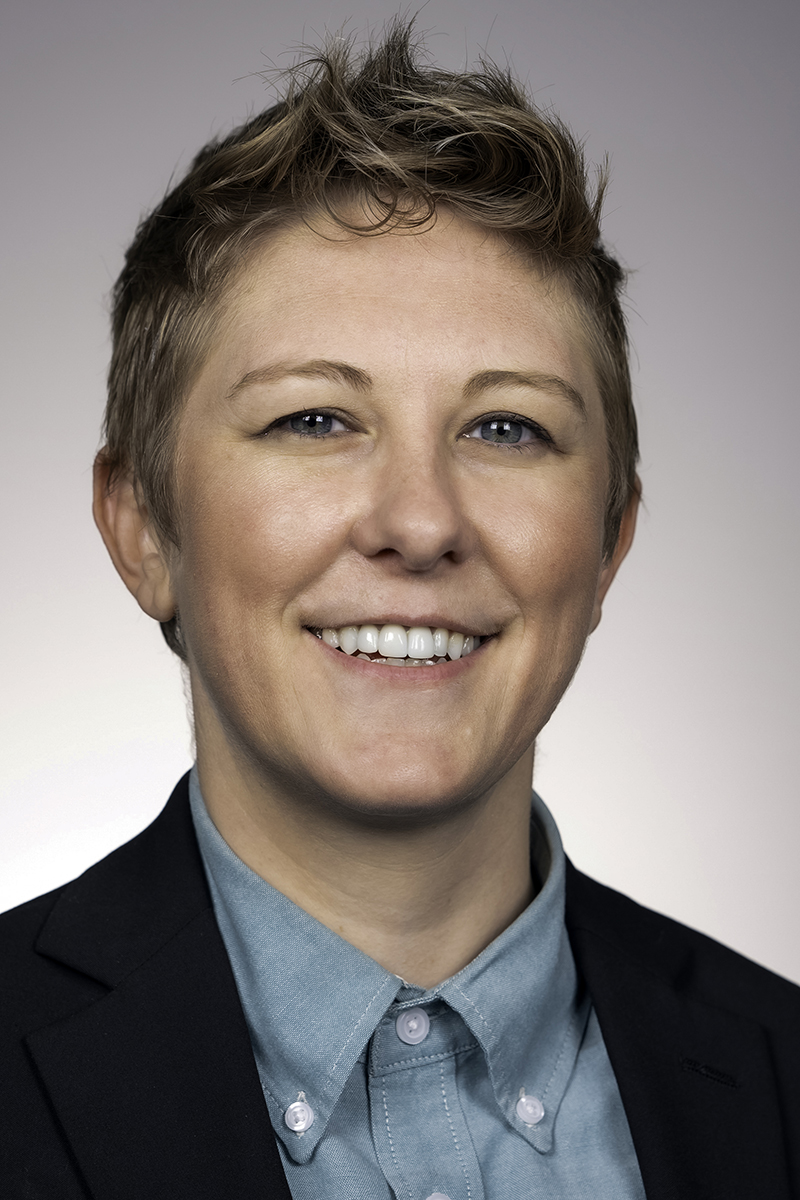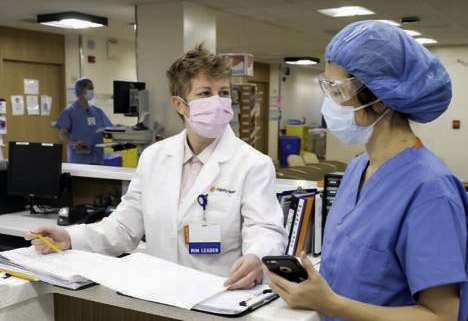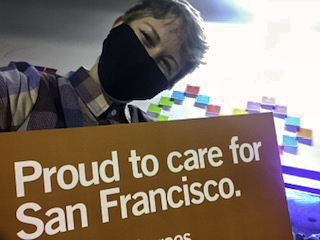
It's LGBTQ+ Pride Month
Profiles In Leadership: Sara Lentz, RN, Director of Nursing Operations, a Passionate Advocate in the Bay Area
 Sara Lentz, RN, Director of Nursing Operations at Dignity Health Saint Francis Memorial Hospital and St. Mary’s Medical Center (San Francisco, California) Sara Lentz, RN, Director of Nursing Operations at Dignity Health Saint Francis Memorial Hospital and St. Mary’s Medical Center (San Francisco, California) |
As LGBTQ+ Pride Month concludes this week, we focus on Sara Lentz, RN, Director of Nursing Operations at Dignity Health Saint Francis Memorial Hospital and St. Mary’s Medical Center in San Francisco, California. She reveals how her passion as an advocate for behavioral health and transgender health care furthers our goals of diversity, equity, inclusion and belonging.
When did you realize the importance of inclusion and belonging, either through acceptance from others or being treated as an outsider? How did that experience shape your attitudes and career path?
When I was “little Sara,” I was outgoing and friendly with everyone, but I recall a time when I was at summer camp as a teenager. I was the only openly gay individual at camp, and through this experience, I learned what it felt like to be on the outside. The girls at camp bullied me, and I felt alone. I had limited control of my emotions. I'd get angry and weep, which wasn't in tune with my character. I have learned a lot from the many situations where hatred and discrimination against being gay has been directed toward me and my loved ones.
In college, I lived with a group of girls who were openly gay, and someone ignited the car parked in our driveway. That was a learning moment for me: Just being ourselves poses risks, not just psychological but physical. Those experiences showed me the challenges of being gay and the importance of taking care of one another.
Another is having an unhoused mother-in-law. We'd go months not knowing where she was. At one point, emergency responders treated her as if she needed to be in a psychiatric ward. In reality, she was an alcoholic, and when she was detoxing, people thought she had schizophrenia. During one of her hospital visits, we were told she had six months to live, but it turned out she actually had sepsis. The providers and staff there stigmatized her, even though she had been sober for some time. We advocated for her, and with the correct antibiotics, she survived. She's been sober for two years and now is the primary caregiver for my 92-year-old grandmother. That taught me you never give up on a human being.
 Sara rounding in the COVID-19 nursing unit during the pandemic. Sara rounding in the COVID-19 nursing unit during the pandemic.
|
What attracted you to Dignity Health in 2007, and what keeps you at CommonSpirit Health?
After I graduated, I applied to all the hospitals that had the word "Saint" in their names because I knew they would be non-profit and align with my internal mission. I got the job at St. Mary's and found myself in tune with the mission and values of serving the vulnerable and translating the work of Jesus. When I got here, I learned we lived and breathed this mission and that I could be the change that I wanted to see in the world. I'm in a Catholic-affiliated hospital, and outside my door is a sign that says "Safe Space for All." I feel like I've always been accepted and actually celebrated and offered another element of diversity.
How do you maintain that sense of inclusion and belonging with your colleagues?
First, I celebrate diversity by approaching situations with an open mind. You lead by example. When someone says that a colleague is negative and that we won't get anywhere with that person on a project, I say, "No, you want that person involved to provide a different perspective and a broader view. We need them at the table." We celebrate diversity!
For me, it's important to show equity with empathy exercises. For example, we've worked with health care providers to demonstrate what it feels like to have schizophrenia. There is an exercise where we take a toilet paper roll and talk to a provider through it while they're trying to talk to each other. They get a sense of how difficult it is to focus and an idea of what someone with schizophrenia goes through when they interact with others. This exercise hopefully facilitates empathy or allows for us to treat those living with mental health conditions effectively and with compassion.
Another way we promote inclusion is to evaluate how we identify with another, especially when it comes to names and pronouns. Each person has the right to be identified accurately. It is very important to ask. Do not be afraid. It comes down to demonstrating that each person has a unique identity, and it is important for each person to be seen. Be accountable for your actions but be patient — don’t be so hard on yourself, seek education, self-reflect, and then these conversations will come more naturally.
 Sara celebrates the care team during the COVID-19 pandemic. Sara celebrates the care team during the COVID-19 pandemic. |
Are you working on a particular program that you think will prove especially impactful in terms of diversity, equity, inclusion and belonging?
I have a passion for our Saint Francis Gender Institute. I started working with them in 2020. We delivered high-quality health care to transgender and gender diverse patients and their families, but the services were fragmented. I was on the core team that helped put together a cohesive service line. We knew we had succeeded in this work when we received an accreditation from the Surgical Review Corporation (SRC), the first hospital internationally to be designated a Center of Excellence in Gender Affirmation Surgery. Through that process, I became the first RN in the world to be certified as a Gender Affirmation Care Specialist. I'm OK with being the first but not OK with being the only, so I was happy to see another RN get certified last autumn.
I also truly believe in protecting the nursing profession. I became a Doctor of Nursing because I know it's important that nurses have a seat at the table. And it's so important to improve opportunities for students that my family started the Sara K. Lentz Nursing Endowment, which provides funds to two students each year at my alma mater, the University of Nevada, Reno.